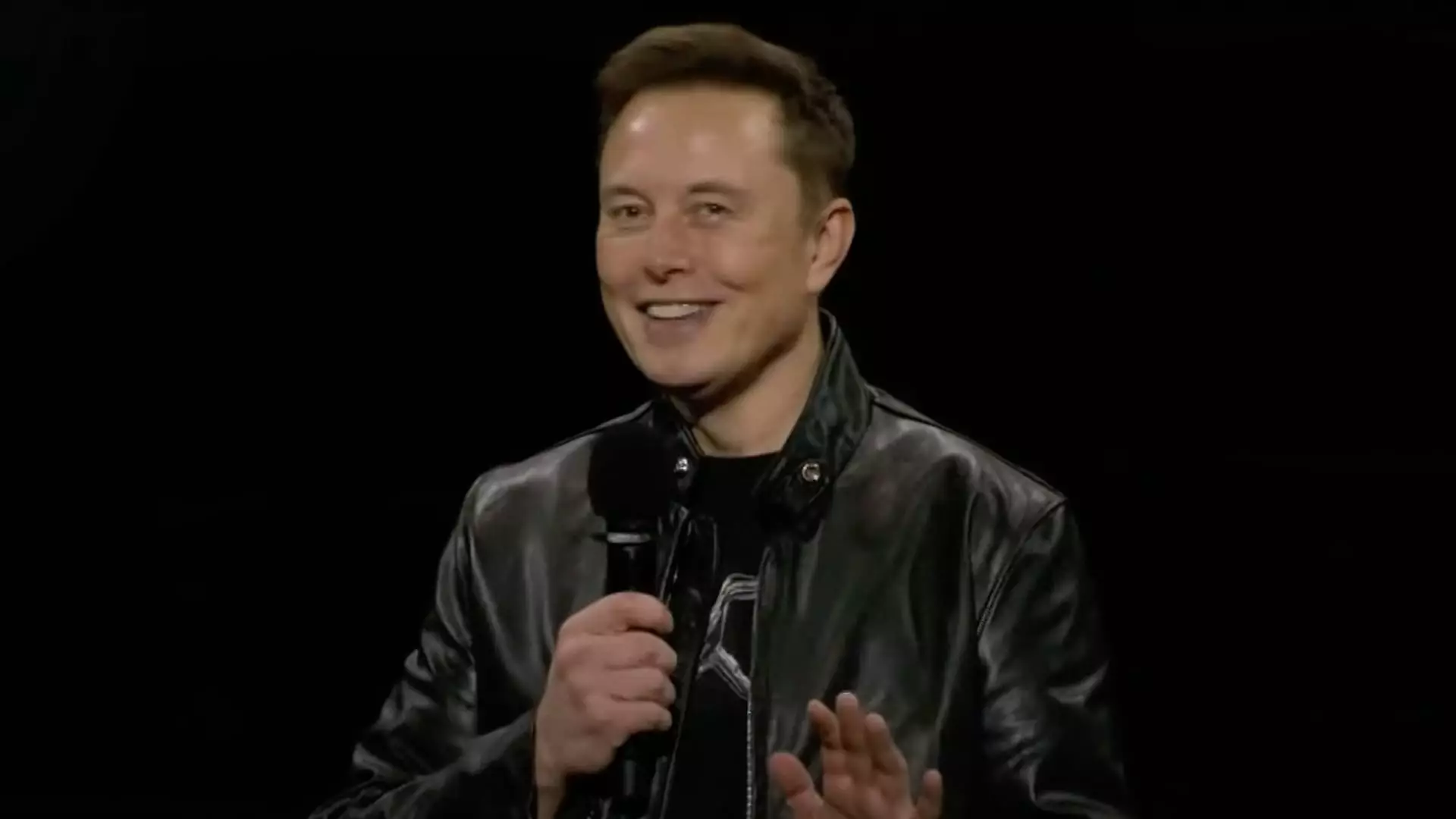As Tesla continues to capture the public’s imagination and economic attention, its CEO Elon Musk remains at the center of a whirlwind of both financial triumphs and polarizing controversies. Recently, Musk saw his net worth soar by approximately $26 billion, reaching an impressive valuation of roughly $269 billion according to Forbes. This significant uptick follows a remarkable surge in Tesla’s stock, which witnessed its most substantial rally since 2013. The resultant financial gain for Musk not only cements his status as the world’s richest individual but also highlights the fluctuating dynamics of the electric vehicle market and the broader tech landscape.
Musk’s fortune is intricately interwoven with Tesla’s performance in the stock market. Control of approximately 13% of Tesla’s outstanding shares largely constitutes his enormous net worth. Despite a prior slump in Tesla’s stock—heading towards its worst monthly performance in several years—the subsequent earnings report shattered expectations, prompting a 22% increase in share price. This remarkable rebound is noteworthy as it demonstrates Tesla’s resiliency, particularly against the backdrop of wider market field, where the Nasdaq has gained 23%. The effective management of the company’s financials, including revenue bolstered by environmental credits and the flourishing Full Self-Driving (FSD) system, showcases Musk’s capability to steer the company through turbulent waters.
However, while the financial gains are impressive, it’s essential to scrutinize the sustainability of Tesla’s growth and its ambitious projections for the future. Musk highlighted a projected vehicle growth rate of 20% to 30% for the upcoming year during the earnings call. Such forecasts invite skepticism, particularly given Tesla’s history of missed deadlines for product rollouts including fully autonomous vehicles.
Musk’s technological ambitions extend beyond automotive innovation, with his sights set on an autonomous future that includes a planned ride-hailing service set to launch in Texas and California. Yet, juxtaposed with Tesla’s ambitious goals, there lies a stark reality: the company has yet to deliver commercially viable, fully autonomous vehicles. While competing projects, such as Alphabet’s Waymo driverless service, have found their footing in the market, Tesla’s projections remain elusive.
Moreover, Musk’s capability to balance his business endeavors with technological feats raises concerns among investors about Tesla’s prioritization and resource allocation. His statements regarding the Cybercab, debuted recently at a high-profile event, have yet to transition into tangible market results. Additionally, despite showcasing both a revamped Roadster and a Semi truck in 2017, production timelines remain uncertain, adding to a narrative of over-promising and under-delivering that haunts much of Musk’s vision.
While Musk’s business ventures garner significant attention, his political engagements have become increasingly controversial. Following his endorsement of Donald Trump, Musk’s political activism has sparked discussions about its potential impact on his role as Tesla’s CEO and the ethical implications aboard his corporate ship. His efforts, including hefty donations to pro-Trump PACs and incentivizing voter participation through daily $1 million awards to registrants, have drawn the scrutiny of watchdog organizations and the U.S. Department of Justice.
Concerns arise among Tesla’s investors regarding the intersection of Musk’s political activism with his responsibilities to protect shareholder interests. The dialogue surrounding this issue reflects broader sentiments within the investment community: Many believe that Musk’s pronouncements in the political arena can divert attention from Tesla’s primary goal of innovation and shareholder value.
As Musk navigates the complexities of wealth, innovation, and political engagement, his future remains both promising and precarious. His ventures in electric vehicles, space exploration through SpaceX, and developments with his AI firm add layers to his already multifaceted persona. However, with great wealth and power comes heightened scrutiny, and the balance between ambition and accountability remains a tightrope walk for Musk.
Investors and observers alike will be watching closely to see how Musk manages these challenges. Will he continue to deliver on Tesla’s projections and technological advancements, or will political distractions impede his capacity to lead? The answers to these questions may determine not only Musk’s legacy but also the trajectory of Tesla and its role in shaping the future of transportation and technology.

